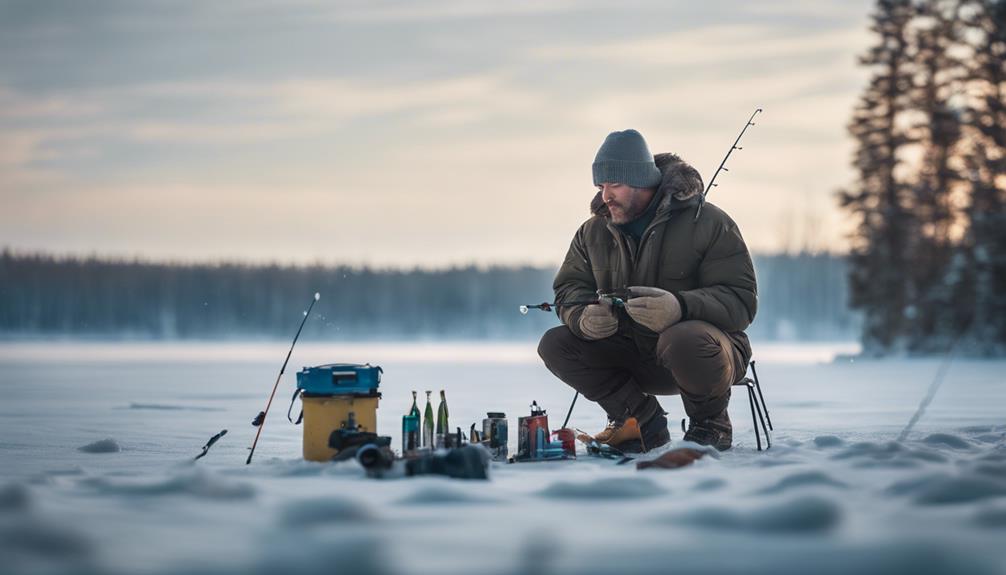Fishing is one of the most popular outdoor activities, offering relaxation, adventure, and the thrill of catching your next meal. However, before you cast your line into the water, you might be asking yourself, “Do I need a fishing license?” This comprehensive guide will walk you through everything you need to know about fishing licenses, including why they are necessary, how to get one, and the different types available.
Understanding the Importance of a Fishing License
When you ask, “Do I need a fishing license?” the answer is generally yes. Fishing licenses are essential for several reasons. First, they contribute to the conservation and management of fish populations and aquatic ecosystems. By requiring licenses, state and local governments can regulate fishing practices, ensuring sustainability for both fish and fishermen. Additionally, license fees fund initiatives such as habitat restoration, research, and public access to fishing areas. Therefore, obtaining a fishing license is not just a legal requirement; it is also a way to support the environment you enjoy.
Who Needs a Fishing License?
The requirement for a fishing license can vary based on several factors, including age, residency status, and the type of fishing you plan to do. Most states require anyone over a certain age (usually 16 or 18) to have a fishing license. However, some regions offer exemptions for young children or seniors. Additionally, residents may have different regulations compared to non-residents. Always check local laws to determine if you need a fishing license based on your specific circumstances and location.
Types of Fishing Licenses Available
When considering the question, “Do I need a fishing license?” it’s also crucial to understand the different types of licenses available. Most states offer various licenses, including:
– Resident Licenses: For individuals who live in the state.
– Non-Resident Licenses: For visitors or those fishing in a state where they do not reside.
– Short-Term Licenses: Typically offered for a few days or weeks for tourists or infrequent anglers.
– Lifetime Licenses: A one-time fee grants lifetime fishing privileges.
Additionally, many states provide specialized licenses for fishing in specific areas, such as saltwater or freshwater fishing. Make sure to choose the right license according to your fishing plans and location.
How to Obtain a Fishing License
Getting a fishing license is generally a straightforward process. Most states allow anglers to purchase licenses online, at local bait shops, or at designated government offices. To obtain a license, you will typically need to provide personal information, such as your name, address, and date of birth. You may also need to provide proof of residency if applying for a resident license. Payment can usually be made via credit card, cash, or check, and once you have your license, make sure to keep it on you while fishing, as you may be required to show it to law enforcement or wildlife officers.
Fishing License Regulations and Compliance
Once you have your fishing license, it’s essential to understand the regulations that come with it. Each state has specific rules regarding fishing seasons, bag limits, and fishing methods. For example, some areas may have restrictions on catch-and-release practices or specific gear you can use. Failing to comply with these regulations can result in fines or the revocation of your fishing license. Therefore, always familiarize yourself with local laws and regulations to ensure a responsible and enjoyable fishing experience.
Special Exceptions and Free Fishing Days
Many states recognize that not everyone can afford a fishing license, which is why they often have special exceptions or designated free fishing days. These days allow individuals to fish without a license, usually during a weekend or holiday. Additionally, some states offer free licenses to certain groups, such as veterans or individuals with disabilities. If you’re unsure about your eligibility for any exemptions or special programs, check with your local wildlife agency for more information.
Consequences of Fishing Without a License
Fishing without a license can lead to serious consequences. If caught, you may face hefty fines, and repeat offenders could even face criminal charges. Additionally, fishing without a license undermines conservation efforts, which can negatively impact fish populations and aquatic ecosystems. To avoid these penalties and contribute to sustainable fishing practices, it is always best to obtain a fishing license before heading out to your favorite fishing spot.
Contributing to Conservation Efforts Through Licensing
Ultimately, when you consider the question, “Do I need a fishing license?” remember that obtaining a license is about more than just legality. Every dollar spent on a fishing license contributes to vital conservation efforts and programs aimed at protecting aquatic ecosystems. These funds help maintain healthy fish populations, restore habitats, and ensure future generations can enjoy the same fishing experiences you cherish today. By obtaining a fishing license, you are not only complying with the law but also actively participating in the preservation of your natural resources.
In conclusion, understanding whether you need a fishing license is crucial for any angler. By following the guidelines outlined in this article, you can ensure compliance with local regulations while contributing to the conservation of our precious aquatic ecosystems. Happy fishing!
